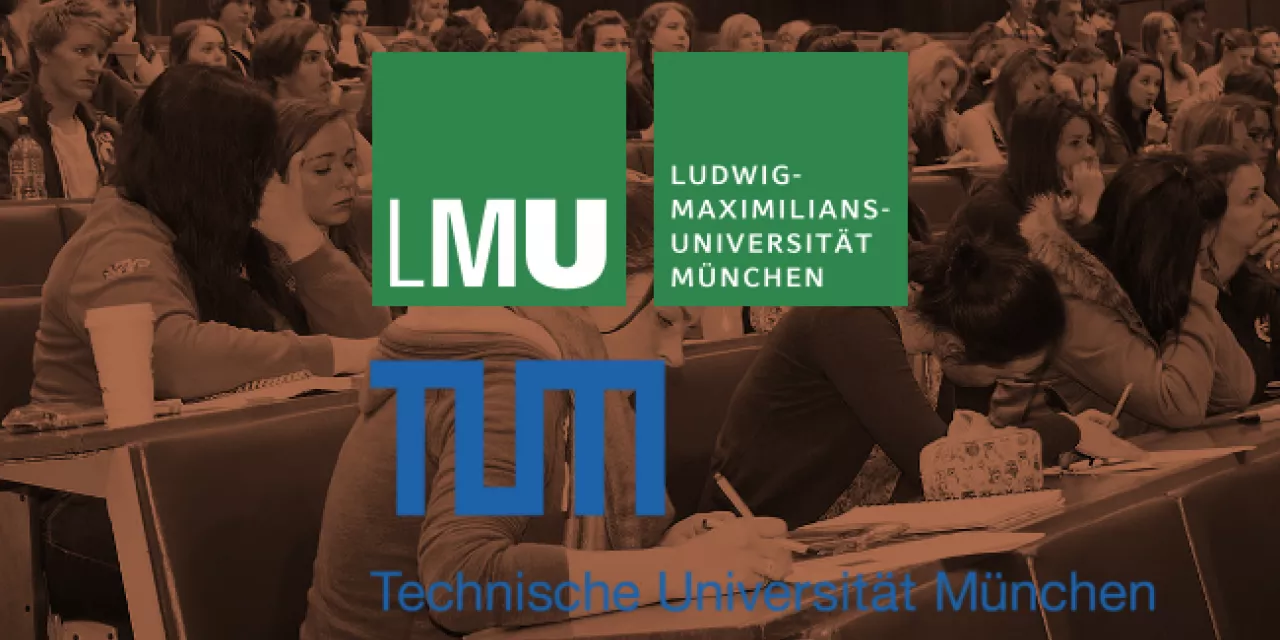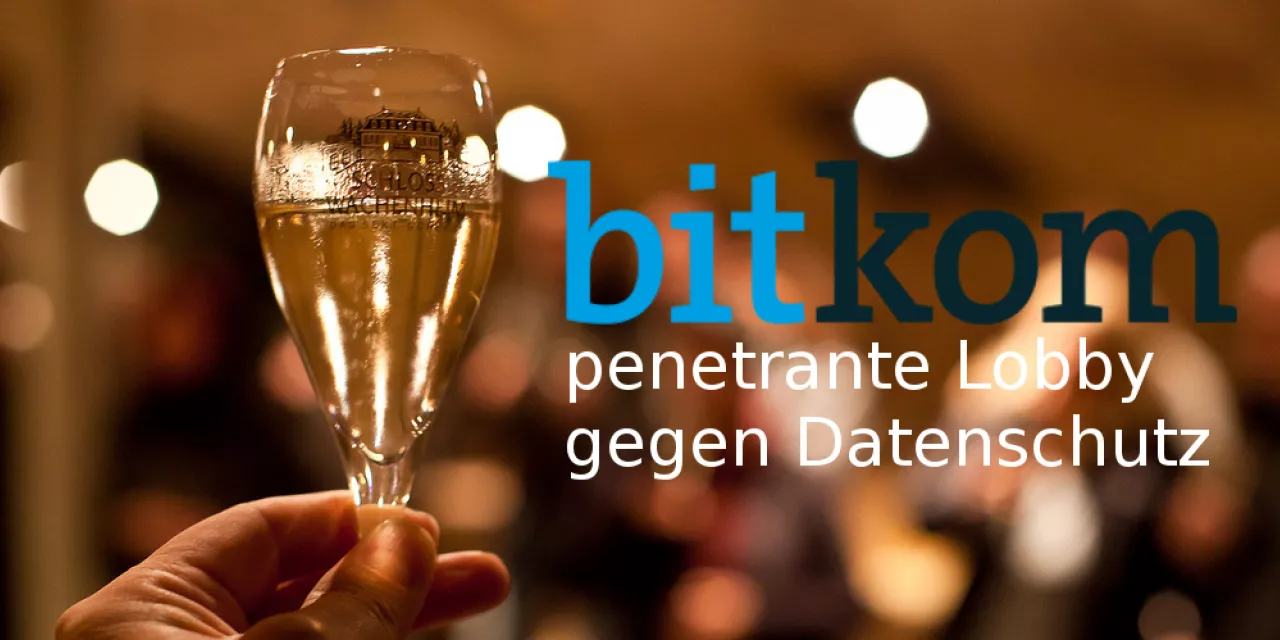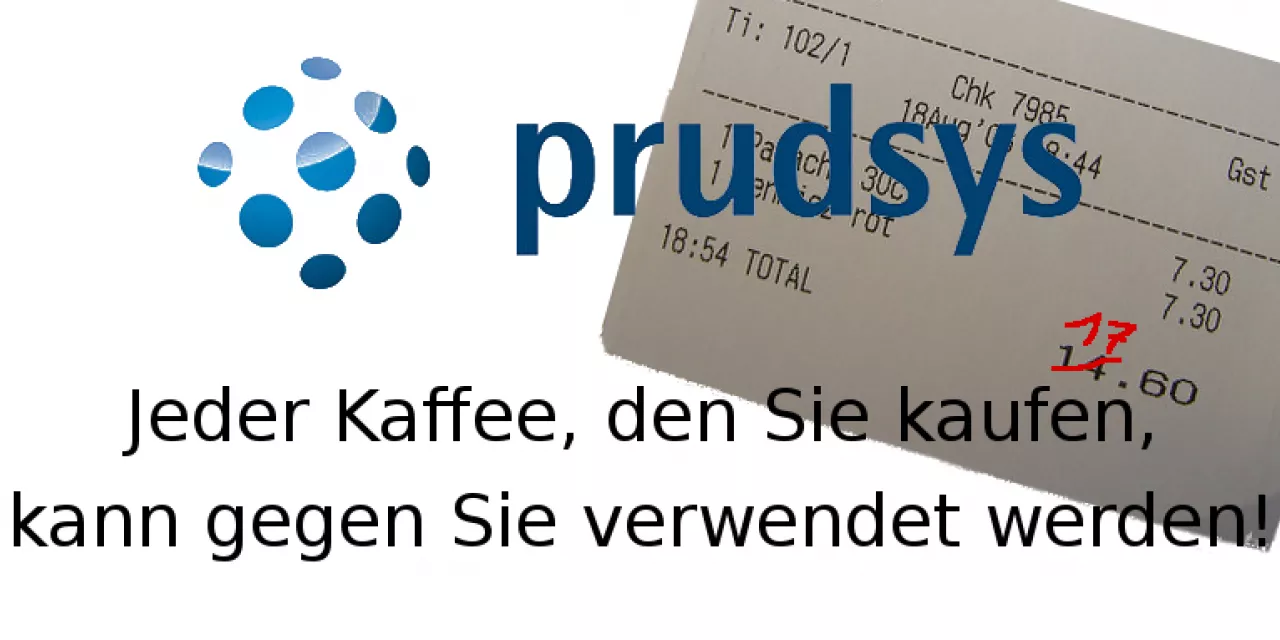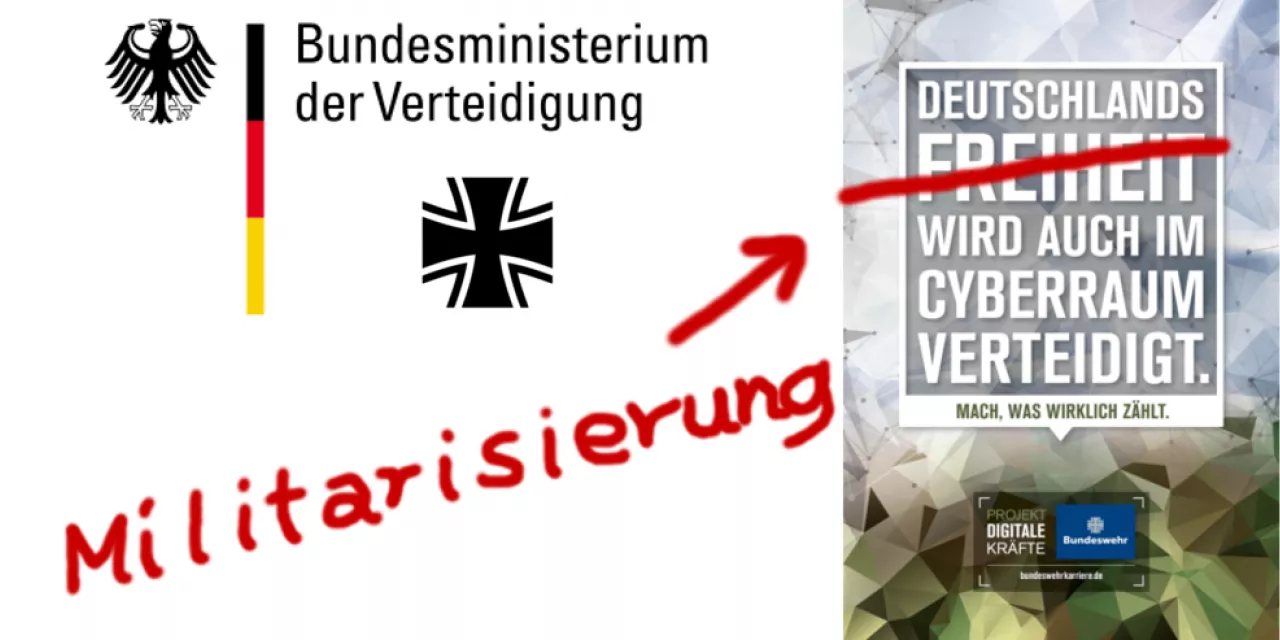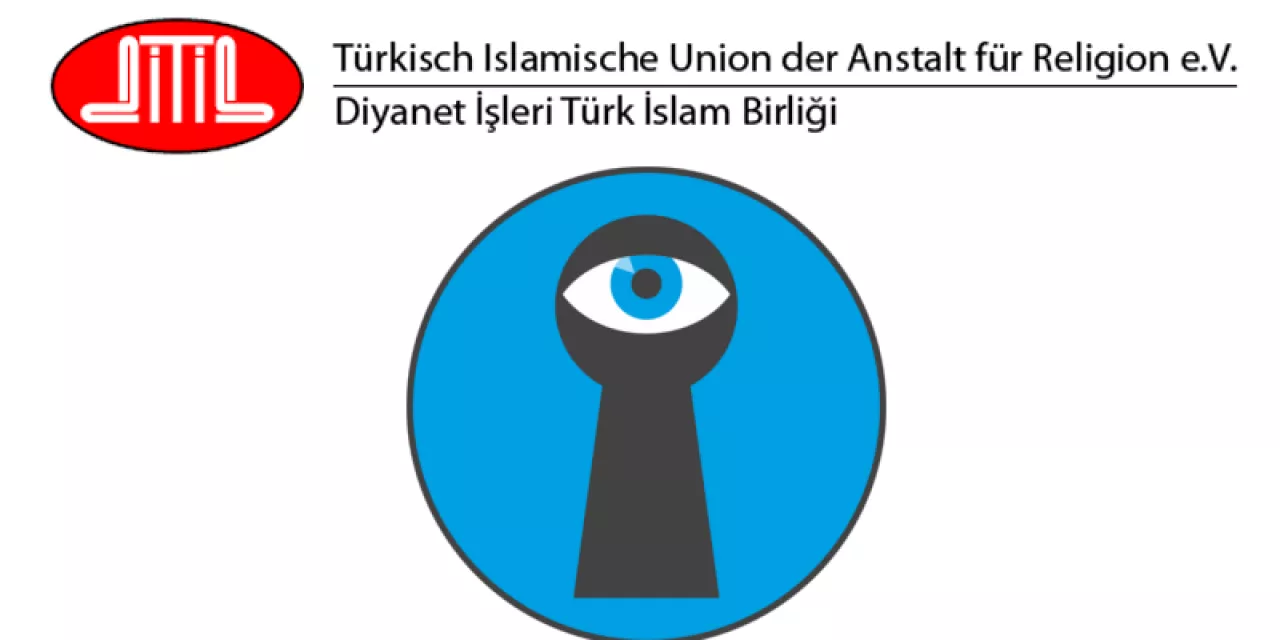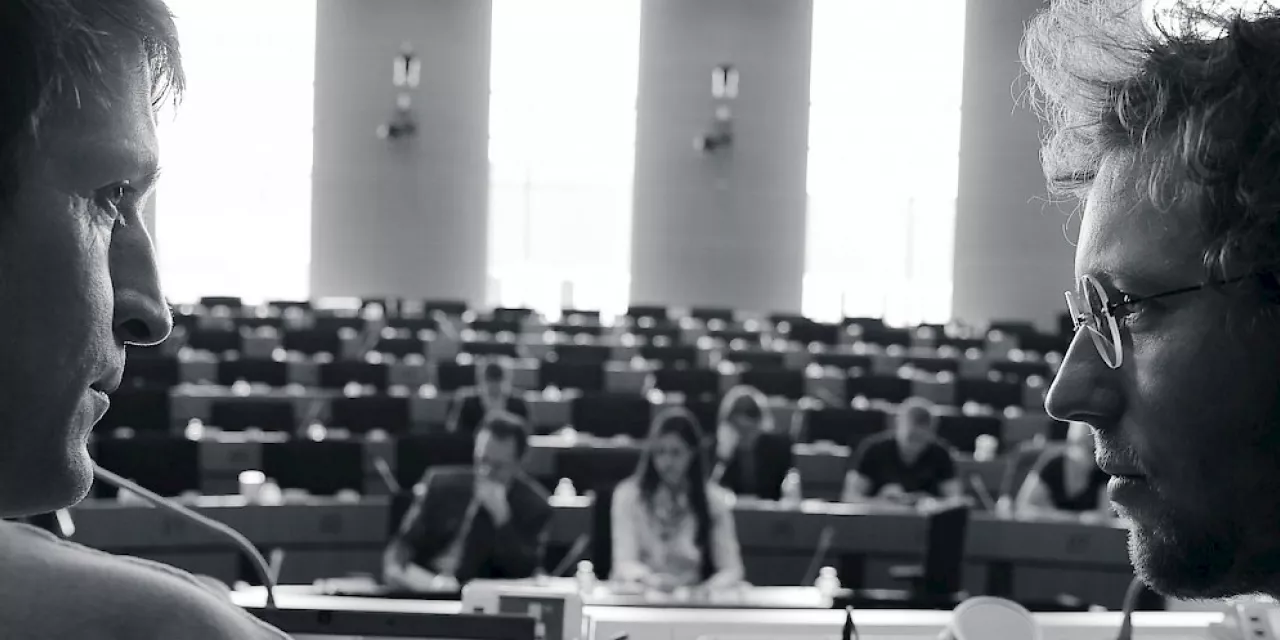The BigBrotherAward 2017 in the “Business” category goes to the German IT business association, Bitkom, represented by chairman Thorsten Dirks. The German IT business association Bitkom receives this BigBrotherAward for their uncritical promotion of big data, for obtrusively lobbying against data protection, and for being a front organisation for big US companies, who call the shots within Bitkom.
Bitkom – what is that in the first place, and what do they do? The basic facts, staccato-style: Bitkom is the German IT business association, founded in 1999, 1.600 members at present; they host the annual “National IT Summit” of the German government (called “Digital Summit” since 2017), conduct studies, are consulted by the German Federal government whenever “something to do with computers” is discussed, and have splendid relations with the political sphere.
So what does Bitkom think about data protection?
Data protection – as Bitkom finds – “is not suited to the present time”, is “outdated”, “analogue”1, “last century”2, over-regulated and no longer up to date3. Apparently, existence determines consciousness here. Burglars similarly think that property is an outdated principle.
But let us grant the Bitkom representatives a chance to speak for themselves:
The managing director of Bitkom, Dr. Bernhard Rohleder, says:
“Naturally, there can be no question of abolishing data protection. On the contrary: The more data is used, the more it must be protected against abuse – legally, technically, organisationally. However, this very distinction is rarely made: reasonable use versus undesirable abuse.”
But wait – who does actually decide what is “abuse” and what is “reasonable use”? In plain language, this presumably means: “In order to protect your data, we have to possess it in the first place! So hand over your data, because we make reasonable use of it: turn it into money! On the other hand, if someone else wants to access our data treasure, it’ll clearly be abuse.”
Next, I’d like to cite the words of Dieter Kempf, former Bitkom chairman, during the Safer Internet Day 2015:
“It must be allowed to raise the question if this absolute notion of data minimisation is still suitable today to regulate modern data processing.”
Bitkom propagates “data opulence” instead of data minimisation. For example, in the Bitkom position paper on “digital sovereignty”. A quote:
“The two basic principles of data protection – data minimisation and predetermination of use for specific purposes – have to be revised and complemented or replaced by the principles of data diversity and data opulence.”
Susanne Dehmel, member of executive management and responsible for data protection within Bitkom, advertises:
“Let’s admit data opulence.”
Euphemism alert: Whoever speaks of “data opulence” keeps secret who actually wants to get rich here, and who will be the resource to be exploited in the future. That’s why the expression already received our Newspeak Award last year!
Bitkom is promoting “data sovereignty” instead of data protection. Its managing director Rohleder, for example, advocates that “the competent consumer must be able to decide in a data-sovereign manner” which services she wants to use, and with whom she wants to share personal data.
Euphemism alert: “data sovereignty” is a nice idea, but whoever says the word acts as if consumers were indeed in power to decide who is getting what information about them. But that is not the case. The word “sovereign” is used to purport that protective laws are unnecessary, and that consumer protection is paternalism.
Whoever requests to replace data protection by “data sovereignty” doesn’t want to protect the citizens’ personal rights, but aims to protect data leech companies against effective laws. “Sovereign” might sound great, but it’s fuzzy instead of legally binding.
Whoever is talking about “individual data sovereignty” is invoking a digital version of the “responsible citizen” – who is usually ignored, but summoned whenever she is to be bamboozled.
“Sovereign” sounds nice at first impression. Isn’t that just what we all want – to be sovereign? The word “sovereign” is magical pixie dust, and Bitkom sprays it over our critical eye like icing sugar. Whoosh – farewell to personal rights. Hello to data as a commodity that consumers can easily give away. By this magic, the economic resource of the 21st century is created. Which – abracadabra – only becomes valuable when it gets into the hands of a data collecting company.
Bitkom chairman Thorsten Dirks even goes the extra mile:
“The principle of data minimisation has become outdated in nearly every aspect of life. We do not want a super basic right for data protection.”
In my mind I can instinctively see a totally unfair super basic right pestering the economy. Seriously: That is completely absurd!
All this has been repeated over and over again. We could also describe this as “whining”.
The worst thing is:
The whining proves effective.
Chancellor Angela Merkel has meanwhile softened and is ready to fulfil every wish of the IT kindergarten Bitkom. Because these children claim to be our future.
Tugging on one coat tail, there are the companies selling surveillance technology, tugging on the other are the companies asking for free rein to do big business with big data. The common enemy has already been spotted: It’s data protection, aiming to protect citizens from the worst excesses.
The whining is taking its effect not only on the chancellor, but also on the three of ministers who share responsibility for the digital realm: Thomas de Maiziére, Minister of the Interior, Alexander Dobrindt, Minister of Transport, and Sigmar Gabriel, (until recently) Minister for Economic Affairs.
When you listen to the members of the government, you get the impression that you are actually hearing the Bitkom spokespeople we just cited.
Sigmar Gabriel during the National IT Summit 2016 in Saarbrücken:
“I believe we have to definitively bid farewell to the classical notion of data protection, because it is no more than a minimising principle for data. That is more or less the opposite of the big data business model. But that doesn’t mean abolishing any kind of data protection, but to focus on ‘data sovereignty’ instead of data protection when it comes to political discussion as well as the actual data handling.”4
The Minister of Transport, Alexander Dobrindt, during a reception hosted by Bitkom:
“The previously valid tenet that data minimisation is the measure of all things has become outdated and must be abandoned. Data opulence must be the benchmark guiding our policies.”
For this the government would like to stand, together with Bitkom5.
Angela Merkel also showed a great deal of understanding for the big data aspirations:
“You need sufficient freedom to use new data, new possibilities of managing data, of big data mining or the cloud for your business models. I think this is a kind of revenue that isn’t yet properly recognized, at least in Germany. Data is the resource of the 21st century”,
she said during a publishers conference in Berlin in 2015.
“If we don’t do it, others will,” Thomas de Maiziére said in his parliament speech on the act to amend federal data protection law after the commencement of the European General Data Protection Regulation. But that is an argument that could as well be used to justify arms trafficking, pimping and drug trade – which we nevertheless consider morally reprehensible.
Bitkom is enjoying its influence on the government. Sometimes a little too much. For instance, a Bitkom representative uttered triumphantly during a hearing on Germany’s draft eGovernment law: “How could I possibly criticise a law that I have written myself?!” The participants of the hearing didn’t seem to take offence at this, because even that degree of lobbying influence seems to be taken for granted.
And now, guess what might be next in our points of criticism:
The well-known strategy of “voluntary self-commitment of the economy”.
To exert its influence in Brussels, Bitkom has founded a charitable association called “Self-regulation Information Economy” (Selbstregulierung Informationswirtschaft e.V., SRIW) – which is promoting “self- and co-regulation”, for example in a committee of the EU Commission. In other words: It covers the field of data and consumer protection, in order to suggest that customers can trust businesses to take care of these concerns. Besides Bitkom, the following are members of SRIW: Deutsche Telekom, DHL, Map & Route, two companies active in panorama images, surveying and georeferencing à la Streetview – and, of course, Google.
A fun fact on the side: The exuberant joy about how well the political lobbying works has led to not one but two written Freudian slips on the SRIW website. First: the word for “reinforced with sanctions” (sanktionsbewehrt) was misspelled and became “sanction proven” instead (sanktionsbewährt) – that’s obvious because SRIW’s strategy to prevent proper legislation by staging self-commitment ballyhoo is indeed “proven”; on the other hand, they do not want personal rights to be “reinforced”.
Telling typo number 2: the website refers to “the digital agenda of the federal regulation”, not the federal “government” (Regierung was changed to Regulierung) – they seem to have already managed to substitute government entirely by self-regulation. Obviously a case of wishful thinking here. Or Google assisted in the translation.
Free rein for big data
Joking apart, the matter is serious. What is Bitkom’s lobbying actually all about? It’s about a free rein for big data business models. Big data means: Piles of data about us are collected en passant – not only which websites I read for information, what I buy, where I travel, but also where I move, how fast I type and how often I mistype, how many messages I send, whether I click on special offers, whether I can be forced into decisions under pressure of time … and on and on. Companies want to let their algorithms loose on such diverse data, aiming to find interesting patterns.
From the collected data, they draw conclusions about our behaviour and our motives and derive projections of our future behaviour. The people applying those projections, in turn, are those who want to take advantage. We are not consulted anymore. Big data is taking away our sovereignty.
It’s very moving to see the intense search for good causes that big data can supposedly support: healthcare, better traffic management, medical insights, identification of fraudulent second hand car dealers, … oh, and jobs, too, naturally.
Big data is a euphemism. In fact, big data is about dispossession – dispossession of people from their data, their motives, their wishes, plans and dreams, and from making their own decisions. It’s about manipulation and control. It’s about staking claims.
But isn’t lobbying what Bitkom is there for?
Precisely – they are doing their job. However, they are doing a bad job! For they are not only working against basic rights and social justice, in the end they are also harming to the German and European digital economy. The uncontrolled growth of data appropriation is fraying consumer confidence – which will lead to distrust and poor acceptance in the long term.
The Bitkom lobbyists are acting as if we were afraid of innovation. But in reality it’s them who are lacking the courage to create novel solutions and handle things differently from the big bros in the US. Why don’t they make use of the assets that German and European companies have due to their long-standing expertise in the fields of data protection, consumer protection, labour rights, environmental protection and more? With the European General Data Protection Regulation, the lex loci solutionis principle will apply from 2018. This means that everyone who wants to do business in Europe must conform to local data protection legislation – no matter where the company is based. That’s one more reason why “if we don’t do it, others will” is a poor argument.
So why are the people in charge at Bitkom not acting with self-confidence and furthering the German economy? Why aren’t they making use of the quality and competence German companies are offering in this area? Interesting question – we have a possible answer:
US concerns are dictating the course of Bitkom
8 percent of the 1.600 Bitkom members come from the US. That doesn’t sound too much at first sight. However, when we take a closer look beyond the mere number and notice which companies are represented by those 8 percent, frolicking about next to German mid-size companies, then the penny should drop: Amazon, Apple, Cisco, Ebay, Facebook, Google, Hewlett Packard, IBM, Intel, Paypal, Xerox and Microsoft – these are big fish in a small pond in terms of revenue, power and market dominance. Additionally, there are market research companies (Forrester), corporate consultancies (Accenture), financial auditors (PriceWaterhouseCoopers), cloud and CRM providers (Salesforce), providers of GPS navigation products (Garmin), credit scoring companies (Fair Isaac), tracking providers (Zebra Technologies) and really popular actors like the taxi business disruptor Uber.
The distribution of power is mirrored by the Bitkom executive committee: 5 out of 16 members belong to a US affiliate (nearly every third).
Indeed, US internet companies have been determining the course of Bitkom for years. That’s where the resources come from. They are in the driver’s seat. We could as well call it non-governmental colonialism. Bitkom is no longer a German IT business association – it has turned into an advocacy group of US concerns sailing under false colours.
Dear Bitkoms: We wish you more courage for an independent German and European path, for autonomy, your own big visions, real innovation! Focus on your own qualities, strip the US concerns of their power and stop whining about data protection.
Dear Federal Government: Stop fulfilling every wish of the Bitkom kindergarten, as long as they haven’t liberated themselves from the influence of the US concerns. If you keep indulging those whining children, it won’t be a benefit for society in the long run, or for the children themselves.
May the BigBrotherAward remind you of this – congratulations, Bitkom!






